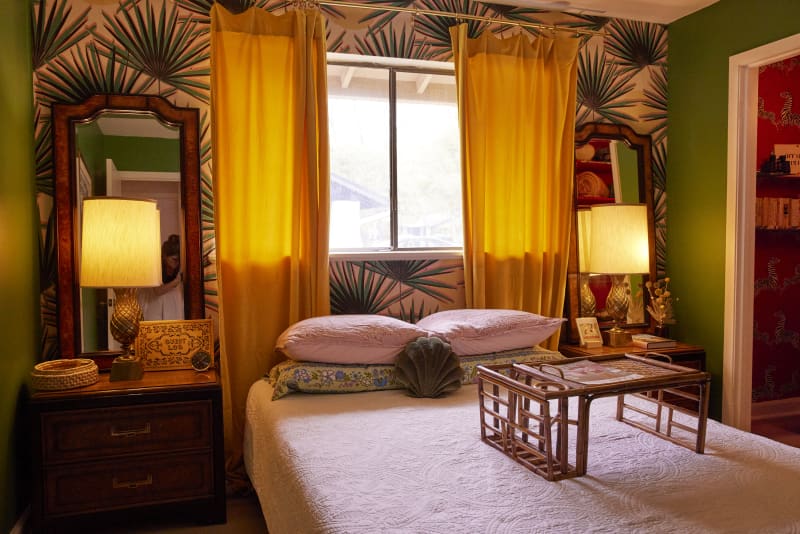I Ditched My Blackout Curtains – And I Sleep Better Than Ever

The Unexpected Impact of Blackout Curtains on Sleep
For years, I didn’t give much thought to blackout curtains. Unlike many people, I never felt that light disrupted my sleep. I was content with simple blinds for privacy and didn’t see the need for anything more. However, when I moved into a condo six years ago, it came with beautiful Greek key custom blackout drapery in the bedroom. I decided to keep them up, thinking they couldn’t hurt.
My husband, on the other hand, was thrilled. He believes that even the slightest bit of light can disturb sleep, and these curtains certainly achieved that. But for me, things weren’t so great. I would wake up in the middle of the night completely disoriented, unsure of what time it was. Navigating the dark was challenging, and I often felt groggy in the morning. Worse still, I started experiencing headaches that were more severe than anything I had ever dealt with.
After five years, we moved into a new (old) house, and for the first few weeks, our bedroom windows were left uncovered. My husband used a sleep mask to get through the nights, but within a couple of days, I realized something was different. I was sleeping better and waking up feeling more rested than I had in years. We were sleeping on an air mattress at the time, so I knew it wasn’t the bed. In my mind, there was only one explanation: the blackout curtains had been the problem.
The Science Behind Blackout Curtains and Sleep
Curious about whether my hunch was correct, I spoke with Dr. Rebecca Robbins, a sleep scientist at Brigham and Women’s Hospital and a sleep expert for Hilton Hotels. She explained that many people believe blackout curtains help them achieve the deepest sleep possible. According to her, “The best bedroom for sleep is dark, quiet, and cool.” A dark environment can help the body produce melatonin, the hormone responsible for regulating sleep.
However, for me, the blackout curtains created a sense of disconnection from my surroundings. It felt like I could sleep forever instead of waking up at a reasonable hour. I usually go to bed around 10 p.m. and feel best if I wake up around 6 a.m. Without the curtains, that’s exactly what happened. When the curtains were in place, I sometimes woke up in a panic at 8 a.m., confused about where my morning had gone.
Dr. Robbins explained that for someone like me, who goes to sleep early enough to rise with the sun, blackout curtains may not be necessary. “If you are falling asleep at a time that would allow you to get enough sleep before the natural sunrise, then falling asleep after sunset and keeping your blinds open so that you could wake up with natural sunlight is advisable,” she said.
This isn’t always possible, especially for people who work night shifts. In those cases, blackout curtains can be very beneficial. “It would be advisable to close your blinds, set your alarm for a time that would allow for enough sleep, then wake up with your alarm, open the blinds, and enjoy the natural sunlight,” she added.
What Happened When I Removed the Blackout Curtains
As soon as I took down the blackout curtains, I noticed a big difference. I began waking up naturally with the sun, without needing an alarm. I no longer tried to go back to sleep or questioned whether it was too early to get up. I woke up knowing it was time to start the day. I had more energy, less grogginess, and on sunny days, I practically jumped out of bed, ready to tackle the day.
There's no doubt in my mind that this change was due to seeing the sunlight as soon as I opened my eyes. It connected me to the daily rhythms and helped me align with a routine that felt more natural than any alarm clock.
Tips for Better Sleep Without Blackout Curtains
If you rely on blackout curtains to get enough sleep, Dr. Robbins suggests trying to get outside into natural sunlight as soon as possible. This can help sync your circadian rhythm with the patterns of light and darkness outside. It can also provide a boost of energy, similar to a shot of caffeine without the jitters.
Another option is using a sunrise alarm clock that mimics natural light, even if it’s not actually coming through your windows. These devices can help you wake up more gently and feel more alert.
Our New Window Coverings
Although I eventually got rid of the blackout curtains in the bedroom, I did end up getting some Roman shades. I chose lined ones, which offer privacy and let in some light without blocking it completely. I now wake up energized with the sun, while my husband still uses his sleep mask to create his own blackout environment, even as the sunlight streams in around him.
Post a Comment for "I Ditched My Blackout Curtains – And I Sleep Better Than Ever"
Post a Comment